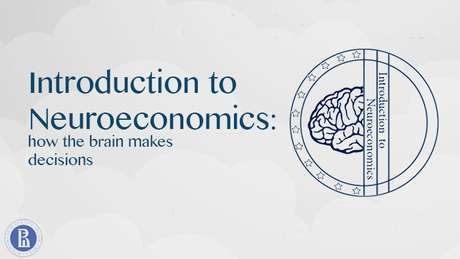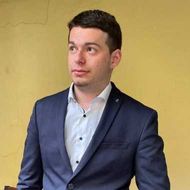- A
- A
- A
- ABC
- ABC
- ABC
- А
- А
- А
- А
- А
- HSE University
- Faculties
- Faculty of Social Sciences
- School of Psychology
- News
- Dean of the HSE Faculty of Psychology Vasily Klucharev will conduct a mass open online course on the educational project Coursera, "Introduction to Neuroeconomics: how the brain makes decisions"
-
Education
-
The School
- About
-
Laboratories
-
- The Scientific-Educational Laboratory of Ability Psychology
- Center for Sociocultural Research
- International Laboratory of Positive Psychology of Personality and Motivation
- Laboratory for Cognitive Research
- Cognitive Psychophysiology Laboratory
- Vision Modelling Laboratory
- Laboratory for the Neurobiological Foundations of Cognitive Development
-
- Partners
- Staff Members
- International Cooperation
Phone: +7 (495) 772-95-90 *15366
Email: dekpsy@hse.ru
Address: 101000, Moscow, Armyanskiy per. 4, c2
Address for correspondence: 20 Myasnitskaya Ulitsa Moscow 101000 (School of Psychology)
In press
Popyvanova A., Pomelova E., Bredikhin D. et al.
IEEE, 2024.
Gorin A., Kuznetsova E., Kislov A. et al.
Frontiers in Human Neuroscience. 2025. Vol. 19. P. 1-15.
W. Joseph MacInnes, Zhozhikashvili N., Feurra M.
In bk.: First International Conference, AIiH 2024, Swansea, UK, September 4–6, 2024, Proceedings, Part II. Artificial Intelligence in Healthcare. LNCS, volume 14976. Vol. 14976. Springer, 2024. P. 221-234.
Ivanova M., Germanova K., Petelin D. et al.
Biorxiv. 005140. Cold Spring Harbor Laboratory, 2024
The School promotes cutting-edge research, multidisciplinary studies, education in English. We are increasing the number of courses in English all the time and have started two English-speaking Master’s Programs. Our researchers have access to Eye trackers, TMS, multi-channel EEG, MEG and fMRI techniques.
The School also aims to train psychologists, who can apply their knowledge in the fields of economics, banking, human resources management, organizational development, ecopsychology and team-building.

Dean of the HSE Faculty of Psychology Vasily Klucharev will conduct a mass open online course on the educational project Coursera, "Introduction to Neuroeconomics: how the brain makes decisions"
 About the Course
About the Course
Economics, psychology, and neuroscience are converging today into a unified discipline of Neuroeconomics with the ultimate aim of providing a single, general theory of human behaviour.
Neuroeconomics can provide economists and social scientists with a deeper understanding of how they make their own decisions, and how others decide. Are we hard-wired to be risk-adverse or risk-takers? How is a “fair decision” evaluated by the brain? Is it possible today to predict the purchasing intentions of a consumer? Can we modulate economic behaviour affecting the brain?
Neuroscience allied to psychology and economics have powerful models and evidence to explain why we make a decision… and whether it is rational or not. Decision-making in financial markets, trust and cooperation in teams, consumer persuasion, will be central issues in this course in neuroeconomics. You will be provided with the most recent evidence from brain-imaging techniques (PET, fMRI and TMS), and you will be introduced to the explanatory models behind them.
The course will start by discussing the foundations of neuroeconomics and the neuroanatomy of the brain (Module I: “How the brain works”).
Module II (“How the brain decides”) then focuses on the core building block of neuroeconomics: decision theory. In a simple way, you will be presented with the main theories accounting for how individuals decide, supported by key empirical studies.
The next module will study the balance between rationality and emotions (Module III: “How the brain feels”): how our emotions interfere with our so-called rational judgments.
Module IV (“Society of brains”) focuses on society: how groups and the social environment interact with individual decision-making. This module will have strong implications for marketing, public policy and public education.
Language: English
Lecturer: Vasily Klucharev
 Dr. Vasily Klucharev received his Ph.D. in physiology from the St. Petersburg State University in 2000. Klucharev is a leading expert in neuroeconomics mechanisms of social behaviour and social influence on human decision making. He has published widely in prestigious neuroscience journals such as Neuron, Journal of Neuroscience, SCAN, and many others. Klucharev had been involved as a researcher at the Laboratory of Computational Engineering, Helsinki University of Technology (2000-2004), Erasmus Research Institute Management (Rotterdam) and Donders Institute for Brain, Cognition and Behaviour (2004-2009). He has been a senior researcher and lecturer at the University of Basel since 2009 and a professor, dean of the Faculty of Psychology at the Higher School of Economics, Moscow.
Dr. Vasily Klucharev received his Ph.D. in physiology from the St. Petersburg State University in 2000. Klucharev is a leading expert in neuroeconomics mechanisms of social behaviour and social influence on human decision making. He has published widely in prestigious neuroscience journals such as Neuron, Journal of Neuroscience, SCAN, and many others. Klucharev had been involved as a researcher at the Laboratory of Computational Engineering, Helsinki University of Technology (2000-2004), Erasmus Research Institute Management (Rotterdam) and Donders Institute for Brain, Cognition and Behaviour (2004-2009). He has been a senior researcher and lecturer at the University of Basel since 2009 and a professor, dean of the Faculty of Psychology at the Higher School of Economics, Moscow.
Sign up for this course on Coursera
- About
- About
- Key Figures & Facts
- Sustainability at HSE University
- Faculties & Departments
- International Partnerships
- Faculty & Staff
- HSE Buildings
- Public Enquiries
- Studies
- Admissions
- Programme Catalogue
- Undergraduate
- Graduate
- Exchange Programmes
- Summer Schools
- Semester in Moscow
- Business Internship
-
https://elearning.hse.ru/en/mooc/
Massive Open Online Courses
-
https://www.hse.ru/en/visual/
HSE Site for the Visually Impaired
-
http://5top100.com/
Russian Academic Excellence Project 5-100
- © HSE University 1993–2025 Contacts Copyright Privacy Policy Site Map
- Edit


